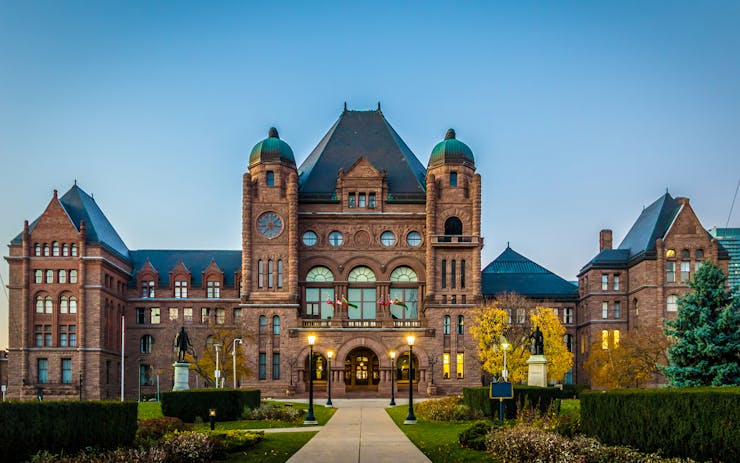The Ontario government today announced that recreational marijuana will be sold only at dozens of province-run stores and through a province-run web site after the federal government passes legislation legalizing recreational cannabis next July.
The province also announced that the sale of marijuana will be restricted to those 19 years and older (a year above the minimum age recommended by the federal government’s cannabis task force) and that the consumption of marijuana will not be legal anywhere but in private residences.
This makes Ontario the first province to establish a plan to manage the sale and distribution of cannabis—a task that has been delegated to the provinces by the federal government.
Forty cannabis stores will be up and running when recreational marijuana becomes legal across the country next July.
During today’s press conference, Ontario Attorney General Yasir Naqvi also said the government is committed to shutting down the dozens of dispensaries currently operating in the province illegally. “Dispensaries are not legal now and will not be legal under the new model,” said Naqvi. “They will be shut down. If you are operating a dispensary, you are now on notice.”
He said provincial officials will meet with municipalities and law enforcement officials to create a plan of attack.
“Dispensaries are at a crossroads in Ontario with many storefronts choosing to shut down,” Lisa Campbell, of the Toronto-based Cannabis Friendly Business Association, said in response to today’s announcement. “There will be a long battle in the coming years ahead, which will be fought in courts. We have been fighting the government retail model for two years now, but the writing was on the wall.”
Forty cannabis stores will be up and running when recreational marijuana becomes legal across the country next July, Sousa said, with another 40 opening within the next twelve months. He said he expects 150 marijuana stories to be operating in the province by the end of 2020. (For comparison, Ontario is home to 651 liquor stores.)
Pricing and taxation have yet to be determined, but Sousa said the price of cannabis in the stores will be low enough to discourage consumers from buying it on the black market.
“Currently the LCBO is the largest buyer of wine globally, which means they could easily be the largest buyer of weed in the near future,” said Campbell. “This has huge implications internationally as we are currently negotiating NAFTA. Having a government monopoly on distribution hopefully means stronger trade negotiations for cannabis. Ontario and California are trade partners, so potential for future LCBO import could be enormous.”
Though the province is restricting consumption of recreational marijuana to private residences, it has not ruled out allowing it to be consumed elsewhere in the future. Sousa said the government could look at that possibility down the road.
In coming up with its new policy, Naqvi said, the province looked at the American states that have legalized cannabis for recreational use. Based on those observations, he said, he believes the province has come up with a “safe and sensible framework.” “The experience of those states has shown us that it’s better to start off with strong controls and re-evaluate later,” added Sousa. He added that the province’s goal is to “supplant the illicit market.”
Shop highly rated dispensaries near you
Showing you dispensaries near“While it’s easy to see the negative there are many future possibilities,” said Campbell, “including licensing cannabis use in bars, lounges and restaurants once the federal government sorts out the final details.”






